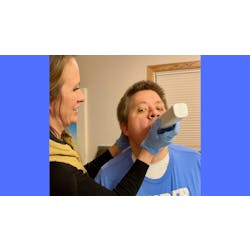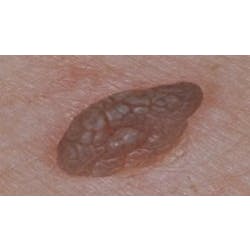What happens after we grieve for a deceased dentist?
BY Cathleen Terhune Alty, RDH, BA
What happens to the solo practice when the dentist unexpectedly dies? Everything falls apart as the grieving begins. Most dental offices are more like family than a business, so the pain and shock can be emotionally devastating. The everyday routine quickly collapses and the questions begin - "What do we do? Who do we call? How can we help?"
After a day or two, the shell-shocked staff begins to pull back together and try to put the pieces of the practice back in order - finding a dentist (or two or three) who can help cover the emergencies and finish any work in progress. "How do we find willing dentists to help? Will our patients still come in, and how will they feel about a different dentist finishing their dental work?" Patients need to be contacted and told the bad news. Grieving staff members may learn that they also need to become grief counselors to their patients. "Do we continue to work? Who will pay the bills?" As reality falls harder on the staff, the true dire straits of the office situation comes into focus - "Will I lose my job? Will the practice be sold? What happens next?" Who is able to direct and lead the staff through this turmoil?
---------------------------------------------
Other articles by Alty
- Exit Strategy: No panic! Just plan out what you would like to do in retirement after years of dental hygiene
- High anxiety in the dental office: It's not all in their head ... but most of it is
- The flavor of dental hygiene: Hygienists fuel the demand for tasty choices during treatment
---------------------------------------------
So many questions, it's easy to see how quickly chaos and confusion can overtake the staff and family of a dearly loved doctor. It is usually the burden of the grieving family to step in and take over the operations of the office. How much does the spouse or family know about running the dental practice? They will need all the business paperwork. Where is it located? Taxes and financials, assets and liabilities, insurance and real estate documents, payables and receivables - where is this information? Does the family know the doctor's passwords to access his or her computer files? It is difficult to make sound decisions when judgment is clouded by uncertainty and grief, and when people are unsure about what needs to be done.
A perishable product
One of the biggest issues is that a dental practice is a perishable commodity that quickly decreases in value over time when not in use. Decisions need to be made and plans put quickly into action to protect the value of the practice.
"When there is a death of the dentist-owner, the last thing the family is thinking about is selling the practice," says Paul Hudanick, a dental practice broker for Practice Impact in Columbus, Ohio. "I seldom get calls from a family member informing me of a death. It's usually another dentist who has heard through the grapevine that a dentist has passed away." Because the inquiry is often about interest in purchasing the deceased's practice, it causes a bit of awkwardness for the broker. "How can I contact the family about the interest without looking like an ambulance chaser?" Hudanick asks. "How do you let someone who has just lost someone they love know what they need to do?"
Like any other business, a solo dental practice is an asset that becomes part of the deceased dentist's estate. The estate cannot own an operating dental practice because only a licensed dentist can own a dental practice. This also means the spouse, family member, or staff cannot continue to run the practice. Most states do allow a brief time period where the practice can continue to operate while waiting to liquidate, and the length of time varies by each state. For example, the estate may have 90 days to operate in order to market and successfully sell the practice to another licensed dentist. Even if allowed more time, it may still seem too short when so much has to be done.
"Dental practices have tangible and intangible assets," says Hudanick. "Tangible assets include the equipment, furniture, computers. Intangible assets are things like the goodwill of the dentist, his reputation that he has built up over the years, the security and trust of patients who have had the continuity of appointments, the staff loyalty and years of service. It is the intangible assets of the practice that are most damaged by time when a practice is closed." Patients who need treatment will find a new dentist. Staff members will exit to find new jobs. He estimates when a practice closes, within 30 to 60 days a practice can lose almost 40% of its value.
Even having a temporary dentist to help doesn't often last long. If the temporary dentist has his or her own practice, the person may be limited on how much time he or she can offer without damaging their own practice production. If the deceased dentist was a member of a PPO requiring a credentialing process, a temporary dentist must also have been credentialed or the practice may have PPO claims denied.
Potential Legal Problems
Legal problems can arise during this tumultuous time. It's important to realize the dentist's estate can still be sued for malpractice committed prior to the death of the doctor until the statute of limitations has run out against the patients. Copies of patient records may be a necessary precaution if the practice is sold to allow the estate access for legal situations. When a practice is sold the new owner often has no legal obligation to share the patient records with the estate.
Next, staff errors can be a problem. A staff member trying to be helpful when there is no dentist present by handing patients' appliances that were fabricated previously could be charged with practicing dentistry without a license. Only a dentist can deliver and/or seat an appliance, whether a crown, retainer, or denture. Even handing the patient the appliance or crown to take to another dentist is illegal. Hygienists asked to continue seeing patients who have not first been examined by a dentist may be in violation of their state practice act. Potential buyers reviewing patient care records may be violating HIPAA privacy rules.
Unfortunately not everyone is charitable or kind when a doctor suddenly dies. Unscrupulous persons may take advantage of the situation. Care of the financial assets such as the bank account access, petty cash, and office credit cards may need to be turned over to the executor or practice attorney to prevent fraud. Employee records, prescription pads, signature stamps, computer backup files, and anesthetic gasses should be secured to prevent unauthorized access.
Preserving the value of the business during life and after death should be the goal of any business owner. However, distractions of the day can prevent a business owner from thinking of long-term solutions to protect the business he or she has worked so hard to create.
Fortunately, there are simple ways a dentist can help maintain the value of the practice and give direction to a grieving family. If a dentist creates advance directives designed to help family, staff, and legal counsel know their wishes in case of their untimely demise, the transition is easier. A will or trust, a life insurance policy, and an estate plan are the backbone of support. Hopefully most dentists have already prepared these basic steps.
The Role of the Hygienist How can hygienists help? Have a heart-to-heart talk with your doctor. When a simple letter can help the dentist maintain the viability of his practice even when he is no longer alive, it makes sense to at least bring it up. You could say something like, "I need to talk with you. This is not about me but about your family and staff. I know you want the best for all of us, but if something were to happen to you, we'd all be in trouble. Your family would be without income and we would be without jobs. A letter of direction, created by you, could be the answer to a lot of questions that would be asked if something happened to you. This is a simple, one-page explanation that names an executor, who to contact to put the practice up for sale, and the location of the practice paperwork. Your estate would reap the benefit of having the proceeds from the sale. The staff would know a new practice owner could be quickly located and would stepping in quickly to keep things running." |
However, another important part of the plan that is often overlooked is a letter of direction. "A letter of direction is usually a one-page letter that states what steps need to be taken with the dentist's assets upon death," says Hudanick. "It is fairly simple and straightforward. It's what dentists should do, but don't do. The document names an executor, a transition company, and dentists to call to help keep the practice afloat." Also, the document may include where to find important business documents needed to sell the practice, passwords to computer files, and other important practice information.
Hudanick says that having an executor named (such as a family member or attorney) with power of attorney privileges speeds up the process of selling the practice. "A dental practice cannot be sold without a signed listing contract. If no executor has been named, it typically can take 30 to 40 days for the probate court to select an executor. Once an executor is in place, it can take another week or two to meet with an attorney." This is time wasted that could have been used to sell the practice and retain its value.
Having a plan in place would also be helpful in case the doctor is disabled or injured. A more detailed plan might include a yearly practice valuation to document what the practice is worth. Most dentists do this at some point for estate planning, divorce, or retirement planning, but having all the information updated yearly about assets and liabilities on a simple spreadsheet will save precious time if it's needed for marketing the practice.
Recent statistics tell us 51% of all dentists in the U.S. are age 50 or over. Although no one likes to talk about it, plan for it, or deal with it, making some basic arrangements while still alive makes things much easier on those who are left to live on. While most assume it will happen at a ripe old age after retirement, better to leave behind some specific advance directives to help everyone navigate the difficult task of living without the dentist. RDH
Cathleen Terhune Alty, RDH, is a frequent contributor who is based in King George, Va.





